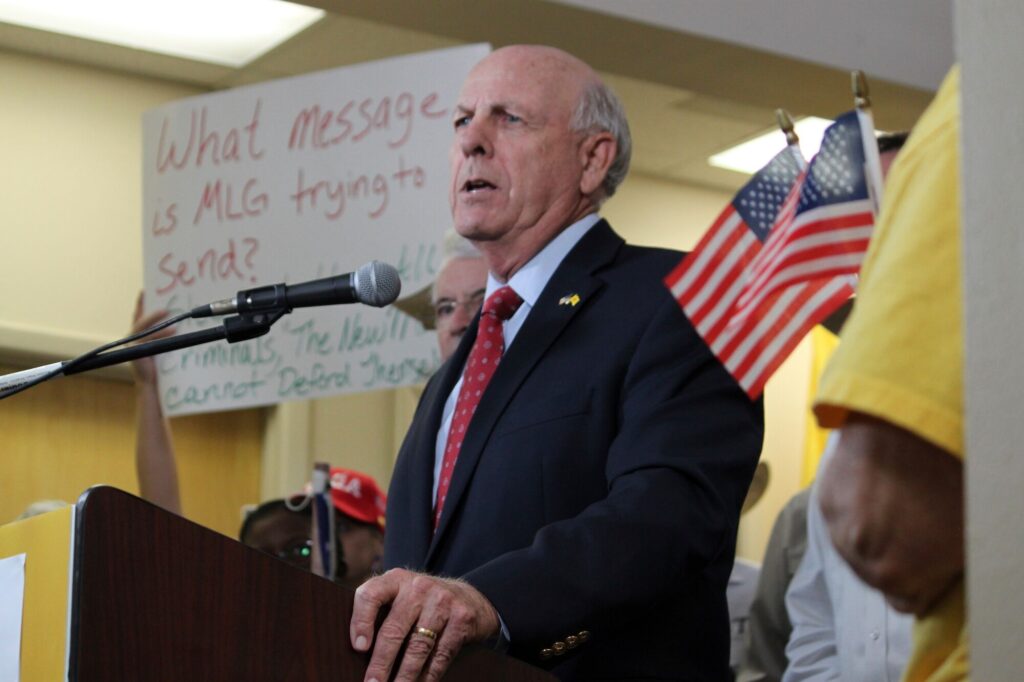Public or private? Court to weigh DPS’ facilities leasing corporation
The attorney challenging the Denver Public Schools district’s financing structure requested a court hearing to determine whether the Denver School Facilities Leasing Corp. is a “public entity” as district officials have claimed.
They have asserted in court documents that the Denver School Facilities Leasing Corp., as a public entity, is entitled to governmental immunity from lawsuits. But they also maintain its lease-financing structure is legal because a separate nonprofit organization — not the district — incurred the debt without voter approval.
It’s not just a semantics quibble. The district’s positions represent a substantive contradiction.
Government agencies entrusted with public funds are held to a higher standard than private organizations. If the court finds that the Leasing Corp. is a public entity, it would be subject to Colorado’s open records and public meetings laws. That would mean documents previously shielded from disclosure — agreements, board communications and financial disclosures —could become accessible under open records laws.
Stacy Wheeler, public information officer for DPS, has denied The Denver Gazette’s requests for documents that should be in the corporation’s possession, suggesting district officials recognize Denver School Facilities Leasing Corp. (DSFLC) is a private, separate organization.
Lisi Owen, the attorney representing Mamás de DPS — a parent advocacy group — filed the motion Monday.
“The reason that the building corporations and DSFLC are private entities is specifically so that they are not bound by the Colorado Constitution, as public entities are,” the motion states. “So, the building corporations and DSFLC contract debt and pledge school buildings as collateral because it would be illegal for their corollaries — the charter schools and School District No. 1, respectively — to do the same.
“But, the building corporations and DSFLC want the benefit of governmental immunity.”
Owen, who made a failed bid for Denver district attorney in 2023, is a civil rights attorney and founder of Vanguard Justice LLC, a law firm focused on exposing public corruption.
Scott Pribble, a DPS spokesperson, declined to comment on the motion.
If the court rules that DSFLC is an “instrumentality of DPS,” the stakes will reach beyond this case. Such a designation would effectively undercut the district’s rationale for bypassing the constitutional requirement for voter approval — an admission the nonprofit has functioned as a workaround all along.
The outcome of this case could reverberate across Colorado, where this widely used — and little understood — financing structure underpins billions in public borrowing.
The constitutional ban against acquiring debt without voter approval also includes secured debt such as using public buildings as collateral.
The Colorado Constitution prohibits public agencies from doing what the DSFLC did as a private entity: assume debt without voter approval. It also bars public entities from creating subsidiary corporations to do indirectly what they cannot do directly — such as acquiring debt or pledging public assets without voter consent
Here’s how the lease financing works: The district transfers ownership of dozens of schools to the nonprofit organization for a nominal price and then the DSFLC uses the buildings as collateral to raise capital from investors through a financial instrument called “Certificates of Participation” (COPs). The school district then uses the raised capital to fund various projects it repays through annual lease payments to DSFLC.
Public finance experts have called the leasing structure a creative workaround of the state ban.
“The COPs are really clever,” said Rey Hernández-Julián, a Metropolitan State University Denver economics professor.
Deborah Carroll, director of the Government Finance Research Center and a public administration professor at the University of Illinois at Chicago, has called it “a really clever circumvention of the voters.”
The district has employed this tactic since at least 1984.
The financial maneuvering has allowed DPS to accumulate debt that rivals the nearly $1 billion bond voters approved last fall — all without putting a single measure on the ballot.
The Colorado Governmental Immunity Act limits when government entities — including school districts — can be sued, generally shielding them from tort claims — except in cases involving unsafe public property or negligence by government employees.
A tort claim is a civil lawsuit in which compensation is sought for harm caused by a wrongful act. The Mamás de DPS lawsuit is not seeking damages, but instead is asking the court to declare the lease-financing structure unconstitutional and order the school buildings returned.
But before the court can weigh the constitutionality of the financing structure, it must first decide whether the leasing corporation is a public or private entity — a distinction that determines whether the constitutional restrictions on school district debt even apply.
“I thought it was obvious when I filed this because that’s the whole point of this; to do what the district and charter schools are not allowed to do,” Owen said.
Colorado Politics Must-Reads:











